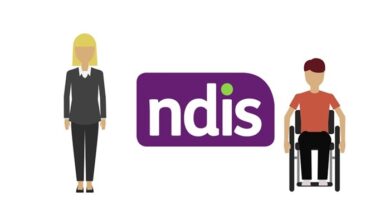Understanding NDIS Exercise Physiology Services

The National Disability Insurance Scheme (NDIS) in Australia has revolutionized the way individuals with disabilities access support and services to improve their quality of life. Among the array of services covered under the NDIS umbrella, exercise physiology stands out as a vital component in promoting health, mobility, and independence for people living with disabilities. In this article, we’ll delve into the fundamentals of NDIS exercise physiology services, exploring their scope, benefits, and impact on the lives of participants.
What Are NDIS Exercise Physiology Services?
NDIS exercise physiology services encompass a range of tailored interventions designed to improve the physical function, fitness, and well-being of individuals with disabilities. Exercise physiologists, who are accredited allied health professionals, utilize evidence-based exercise programs and strategies to address the specific needs and goals of participants, taking into account their unique abilities, limitations, and medical conditions.
Who Can Access NDIS Exercise Physiology Services?
Individuals eligible for NDIS support due to a permanent and significant disability may access exercise physiology services as part of their NDIS plan. This includes people with physical disabilities, neurological conditions, intellectual disabilities, sensory impairments, and psychosocial disabilities. Eligibility for NDIS funding is determined through an assessment process conducted by the National Disability Insurance Agency (NDIA).
Benefits of NDIS Exercise Physiology Services
The benefits of NDIS exercise physiology services are multifaceted and can have a profound impact on the lives of participants. Some key benefits include:
- Improved Mobility and Functional Independence: Exercise physiologists work with individuals to enhance mobility, strength, balance, and coordination, enabling them to perform daily activities with greater ease and independence.
- Management of Chronic Health Conditions: Exercise programs tailored to the needs of participants can help manage chronic health conditions commonly associated with disabilities, such as diabetes, obesity, cardiovascular disease, and musculoskeletal disorders.
- Pain Management and Symptom Relief: Exercise interventions may alleviate pain, stiffness, and discomfort associated with certain disabilities, improving overall comfort and quality of life.
- Enhanced Physical Fitness and Well-Being: Through regular exercise, individuals can improve cardiovascular fitness, muscular endurance, flexibility, and overall physical fitness, leading to greater energy levels, mood enhancement, and improved mental well-being.
- Prevention of Secondary Health Issues: Targeted exercise programs can help prevent secondary health issues and complications commonly experienced by individuals with disabilities, such as pressure sores, osteoporosis, and respiratory problems.
- Support for NDIS Participants’ Goals: Exercise physiologists collaborate with participants to set achievable goals related to mobility, fitness, and health, providing ongoing support and motivation to work towards these goals.
How Are NDIS Exercise Physiology Services Delivered?
NDIS exercise physiology services may be delivered in various settings, including:
- One-on-One Sessions: Individualized exercise programs and consultations conducted in clinical settings, community facilities, or participants’ homes.
- Group Exercise Classes: Structured group exercise sessions tailored to the needs and preferences of participants, fostering social interaction and peer support.
- Home Exercise Programs: Customized exercise programs designed for participants to perform independently at home, with ongoing guidance and monitoring from exercise physiologists.
- Community-based Programs: Collaborative initiatives with community organizations, fitness centers, and sports clubs to provide inclusive fitness and recreation opportunities for NDIS participants.
Conclusion
NDIS exercise physiology services play a vital role in supporting the health, mobility, and well-being of individuals living with disabilities. By providing tailored exercise programs, education, and ongoing support, exercise physiologists empower participants to achieve their goals, maximize their potential, and lead fulfilling lives. As an integral component of the NDIS framework, exercise physiology services contribute to promoting independence, inclusion, and quality of life for people with disabilities across Australia.





